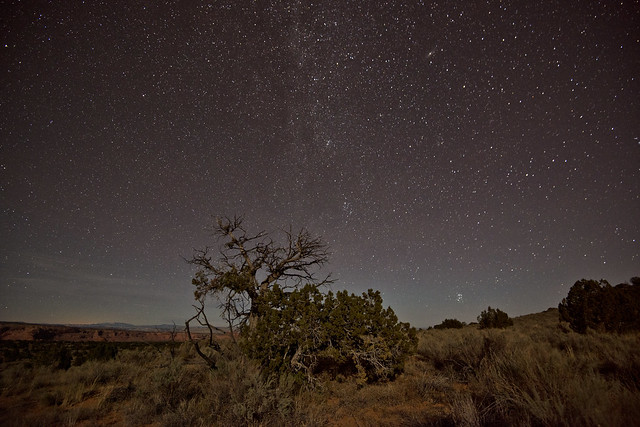We embarked on our first Bupp-Family-Real-Christmas-Tree-Adventure
this year. As a kid, I remember hours of hunting (and forty lost mittens) to
find the perfectly formed tree. Perhaps as a reaction to all of those hours, or
because our kids are so small and it was so cold, we cut down the third tree we
considered. It seemed perfect. Inside our house it was…different. It was MUCH
larger and wider and crookeder and taller and everything-er than it seemed
outside. It is spectacular.
 How does a tree grow into a shape like this!? The
biologist in me has considered all of the formational influences that molded
the tree into its shape: shifting soil, weather, critters, pruning, and the
surrounding trees. All the time, by so many devices, the tree was formed into
this fantastic shape as it grew.
How does a tree grow into a shape like this!? The
biologist in me has considered all of the formational influences that molded
the tree into its shape: shifting soil, weather, critters, pruning, and the
surrounding trees. All the time, by so many devices, the tree was formed into
this fantastic shape as it grew.
The same is true of us as well – we are always being
formed by something.
We are formed by our family, by culture and the media,
and when we’re intentional, by the Bible, the church, and our community. The
seasons of advent and Christmas offer easier opportunities to be formed by
Christ. So many things regularly turn our minds toward Christ and His coming;
Christmas carols everywhere from malls to church, and advent devotionals and
reading plans on the Bible App that seem to go hand in hand with lights and
ornaments. Without much effort, many of us are enjoying a season of being
formed into the image of Christ.
But now my vacuum bag has more needles than the tree
branches do; Christmas is over. Derek reminded us this week that when we arrive
in this after-Christmas-lull, most of us ask – whether we realize it or not –
Now what? We’ve enjoyed being shaped by God over the last month, how can that
continue?
God broke into the dark and sent His Light. The Word
came, and He made His dwelling among us. Hope is alive. Now what?
Now we are called into holiness, into godliness, into a
deeper and fuller and more life-invading relationship with Jesus; He is
dwelling with us. Now we pray for the Holy Spirit to continue the work of formation,
instead of packing it up with the ornaments. Now we seek to have not only our
Decembers formed by Jesus Christ, but our Januarys and Februarys and Julys as
well!
Now we get uncomfortable.
Derek reminded us, from Colossians 3:12-17, that
formation and discipleship happen within community. As we find a sense of
belonging with each other, we learn the stories of God’s faithfulness to His
people historically, and to His people today, and our hope grows. In community,
we are called and equipped to transform the world to the glory of God.
This kind of community – faith forming community – is
beautiful and necessary; but to engage in it, we’ll have to get uncomfortable. So
many of us look for and long for community, and are frustrated when we feel
without it; but we seem to want community to magically happen to us while
everything else about our lives remains unchanged. I’m so comfortable in my
usual routines, in my normal avenues of faith (and let’s be honest, on my couch
doing nothing about my faith!). The idea of intentionally getting uncomfortable
and out of routine to make room for new community, for new ways of being formed
and discipled (and for forming and discipling others!) seems intrusive.
Smiling and saying hello to acquaintances over the coffee
pots is comfortable, and gravitating to our close friends on Sunday morning
feels safe. Making new friends can seem intimidating, especially if they are
older or younger or have kids (or don’t!), and it can seem uncomfortably
vulnerable to share a story of God’s work in your life right now with any
friends, new or old. Sunday morning is the normal routine; a weeknight for
Bible study or kitchen group or another ministry will cramp your style. And the
older we get, the more uncomfortable it is to admit that we are still being formed;
it’s far more comfortable to let our faith remain unchanged and unchallenged.
As we clear away the manger scenes and tinsel, can we
also clear room in our lives to meaningfully engage with our church family? Are
we willing to get uncomfortable, to be people intentionally seeking formation
and discipleship as a community?
Our Christmas tree won’t fit back through the front door,
so I’m getting ready to throw it off the deck next week; it makes me think of
the things I’ll need to throw out of my heart that get in the way of real, deep
community: the fear that makes me hold back parts of myself, the self-reliance
that prevents me from reaching out, the selfishness that makes me want to stay
home and do my own thing. None of my excuses are worth missing out on the
fuller life that Christ offers to us within the body of believers.
Jesus has come; Emmanuel, God with us, is here in our
midst. Now what?
Now we clear the clutter from our hearts and schedules
and deliberately engage in formational community; now we embrace discomfort
until community becomes our routine. Through the power of the Holy Spirit, let’s
help each other be formed more and more into the image of Christ.
[Robin Bupp is married to Caleb, and they are from many places east of the Mississippi (but are calling Michigan home for the foreseeable future). A former high school science teacher, Robin is slowly turning the two Bupp kiddos into tiny nerds while they teach her lots of things, especially humility and patience.]









